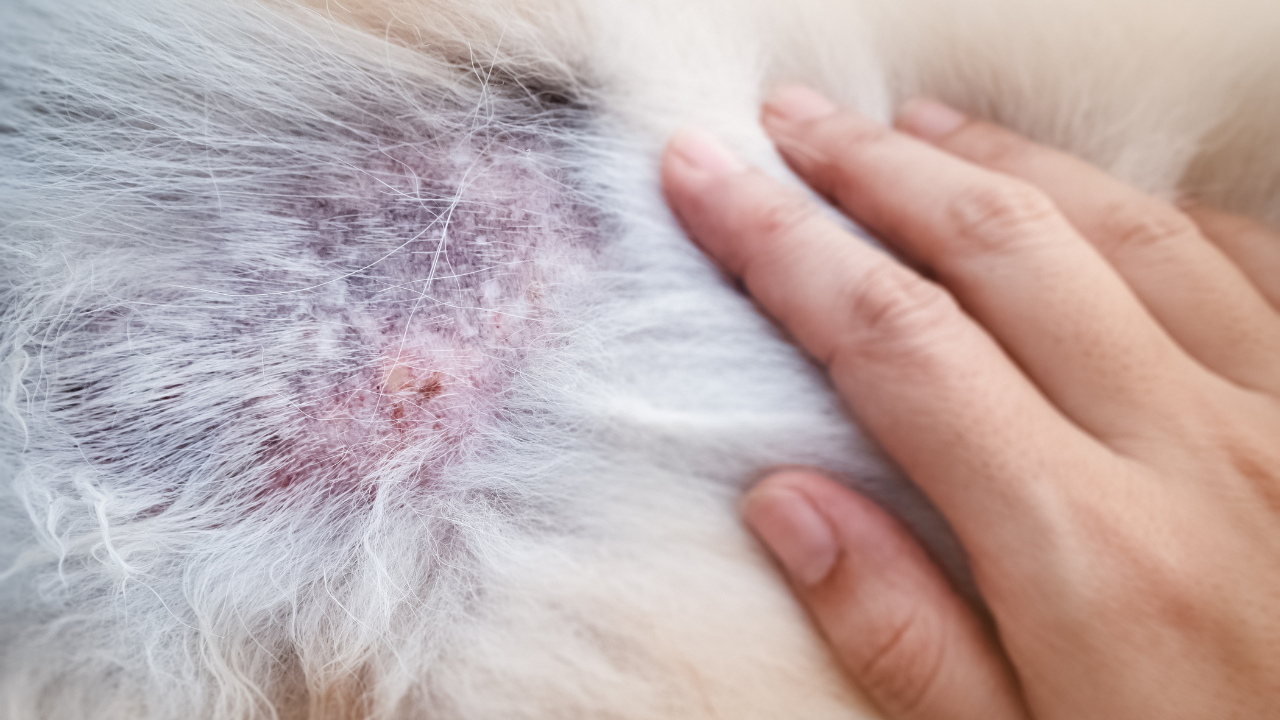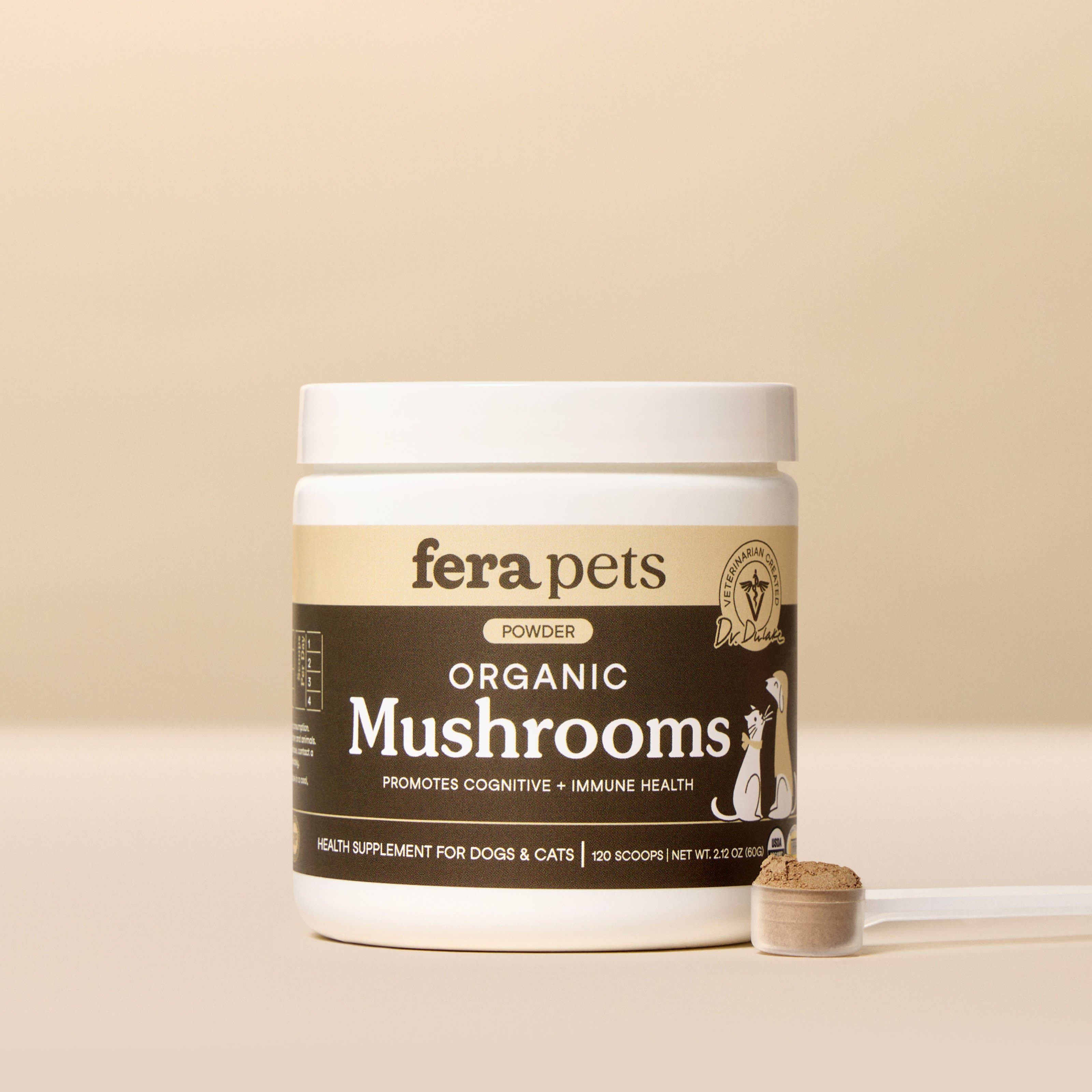Causes of Atopic Dermatitis in Pets and the Best Ways to Treat It
Is your pet's constant itchiness driving you both mad? Uncover the hidden culprit behind their insatiable scratching – atopic dermatitis. Learn the surprising causes, tell-tale symptoms, and effective treatments for this serious skin condition. Don't let your furry friend suffer – read on to become their itch-relief hero!
Every pet gets the urge for a good scratch every once in a while, but when the occasional itch becomes an insatiable habit, it’s time to take a closer look at your furry friend’s skin.
Hot spots and fleas are likely suspects, but a more serious issue known as atopic dermatitis could be to blame. This skin disease is caused by an overreaction to allergens, and if left untreated, can lead to secondary infections and serious discomfort.
If your pet’s itchiness has you scratching your head, read on to learn more about atopic dermatitis in pets, what causes it, and how you can get started on the right treatment.

Causes of Atopic Dermatitis in Pets
Pet allergies were something I commonly treated in my veterinary practice. Most cases are mild and nothing a good bath or dietary supplement like fish oil can’t fix. However, some pets can have more severe reactions to an allergen that develops into atopic dermatitis.
There is a wide variety of allergens that can trigger your pet’s allergies. Here are some of the most common:
Environmental Substances
The same airborne allergens that give you allergies can also kickstart your pet’s. Pollen, dust, mold, and spores are typical catalysts for allergic reactions, especially during the springtime.
Insect Bite
Some pets are allergic to the saliva of insects like fleas, mosquitoes, horseflies, and ants. If your pet is scratching excessively in a specific area, check it for bites or stings.
Chemical Molecules
The synthetic molecules of cigarette smoke, perfume, and even cat litter can bring on allergies and atopic dermatitis in pets.
Genetics
If your pet has atopic dermatitis, look back on their family tree. This condition can be genetically inherited from one of their relatives.
Food Allergies
When your pet’s body breaks down food molecules and misidentifies them as a threat, a food allergy is formed. Check their food’s label for ingredients they could be allergic to like:
- Beef
- Chicken
- Dairy
- Wheat
- Corn
- Soy

Symptoms of Atopic Dermatitis
The tell-tale signs of an allergic reaction in pets manifest differently from a human’s. Instead of coughing and sneezing, your pets will most likely display symptoms such as:
- Excessive scratching, especially around the paws, front legs, face, and ears
- Red, inflamed, or greasy skin
- Musty odor coming from the skin
- Increased licking of affected areas
- Hair loss
Animals that struggle with atopic dermatitis are also susceptible to secondary skin infections, ear infections, and yeast infections.
If your four-legged friend begins to display signs of atopic dermatitis, you should set up an appointment with your veterinarian before the symptoms worsen.

How to Treat Atopic Dermatitis in Pets
The first step for treating atopic dermatitis is identifying the responsible allergen. This part is important because if the culprit is identified as an ingredient in their food or an insect bite, the condition is easily treated with a diet change or preventative.
However, if an environmental substance causes your pet’s allergies (which is true in approximately 60-70% of atopic dermatitis cases), symptoms can be concurrent with the seasons and treatment will be required annually.
To determine the specific allergen, your veterinarian may recommend intradermal allergy testing. During this procedure, a small amount of suspected allergens will be injected into your pet’s skin. The injection site is then monitored for any signs of an allergic reaction.
While there have been many successful intradermal allergy tests, pinpointing exactly which allergen is the offender can be difficult because the same clinical signs caused by grass and pollen are the same as dust mites, molds, and more.

Treatment Options
Supplements
Caring for your pet’s skin can be as simple as adding a good supplement to their diet. From my own experience as a veterinarian, I believe that organic supplements made with clean ingredients are the best option for your pets, which is why I recommend these skin-healthy options from Fera Pet Organics:
- USDA Organic Probiotics with Prebiotics: The beneficial microorganisms found in our probiotic powder are good for supporting skin health, the digestive system, and the immune system. The added organic prebiotics will help keep the microbial balance in your pet's intestines.
- Fish Oil + Vitamin E: This do-it-all supplement supports your pet’s skin with oils from sustainably-sourced sardines, anchovies, herring, and mackerel. Every batch is third-party tested with the highest standards by the EUROFINS testing program.
- Omega-3s Algae Oil: Our vegan Omega-3s is the only plant-based oil that has the highest natural concentrations of both EPA & DHA. Not only does it promote healthier skin, but it improves retinal development, eyesight, heart function, and more.
Anti-Inflammatory Drugs
Anti-inflammatory treatments such as antihistamines and corticosteroids are great for minimizing the effects of an allergic reaction. Plus, they have very few side effects aside from slight drowsiness.
These medications can be given orally or through a long-acting injection. You and your veterinarian can discuss which would be best for your companion.
Desensitization Therapy
If your pet’s intradermal allergy test was successful, desensitization therapy will help their immune system become accustomed to the allergen and lessen the symptoms.
Small amounts of the allergen will be injected into your pet’s skin each week. This will reprogram their immune system to become desensitized to the allergen.
This kind of treatment significantly improved the clinical signs of atopic dermatitis in 50% of studied dogs.
Hypoallergenic Shampoo
There’s nothing like a nice, warm bath and a good hypoallergenic shampoo to relieve your pet’s dry and itchy skin. Look for ingredients like oatmeal, aloe vera, and Vitamin E on the labels of pet shampoo bottles.
A pet with atopic dermatitis symptoms should be bathed about once a week to keep their skin from getting inflamed.
Upgrade Your Pet’s Skincare Regimen the Natural Way
Discover the secrets to your pet's optimal health with Dr. Michelle Dulake's proven methods! Unleash the full potential of their well-being and share in their vibrant life. Don't wait – improve your pet's vitality and longevity today with expert guidance from the trusted veterinarian!
Our skin and coat supplements for dogs and cats offer numerous benefits. Subscribe to your favorites to get your pet started on some of the best natural supplements while you enjoy extra perks like 10% savings and free 2-3 day shipping.
Why don’t you stay a while? Explore more of our blog for vet-approved pet health tips, recipes, and more.





